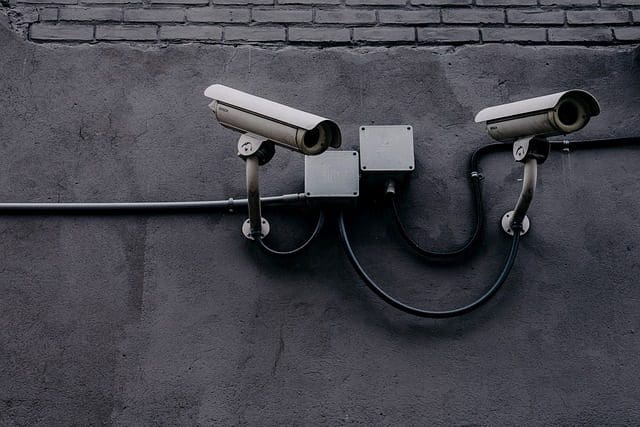Business assets like machinery and intellectual property are valuable resources. They all help maintain a company’s stability, competitiveness, and growth. However, various external and internal challenges threaten the safety of an organization’s assets. Natural disasters, theft, cyberattacks, and human error can all jeopardize a business’s foundation. In today’s interconnected global environment, these threats can further impact operations.
As such, securing such possessions bolsters a company’s daily functions and contributes to its success. Asset protection allows businesses to maintain a competitive edge, earn customer trust, and reduce losses. Additionally, it safeguards intellectual property, fostering innovation and future growth.
Explore various strategies in this guide for protecting your company’s assets and learn essential factors to consider when building a plan. By adhering to the advice provided, your business can enhance the safety of its resources and boost its success. So, get ready to fortify your business against looming threats.
- Implement Robust Security Systems
Safeguarding business assets starts with establishing a robust physical security system. The process begins by assembling a skilled security team to protect the property from theft and vandalism. If you want to upgrade your safety measures, you should get the best security guards in Edmonton or a similar city. Their dedication can help deter unfortunate incidents.
In addition, consider implementing security tools to enhance protection at your business location. Modern surveillance systems are becoming increasingly user-friendly, thanks to technological advancements. Similarly, cutting-edge access controls regulate entry and exit points, ensuring only authorized individuals can access the premises.
- Safeguard Intellectual Property
Intellectual property (IP) is often neglected in an enterprise’s assets, which is essential for long-term success. Consequently, seeking advice from an IP attorney can protect creative designs via patents, copyrights, and trademarks.
In addition, implementing non-disclosure agreements (NDAs) with team members, suppliers, and clients is advisable. This approach guarantees that proprietary information stays confidential. Skillfully created contracts prevent legal disputes and preserve the business’s financial stability.
- Maintain Digital Security
In today’s interconnected world, digital security is paramount. Safeguarding a company’s data and online activities requires robust defenses against cybercriminals. Regularly updating all systems with the latest security patches helps thwart phishing attempts and ransomware attacks.
Furthermore, partnering with managed service providers (MSPs) can prove beneficial. These professionals can evaluate and enhance your digital infrastructure’s security. Moreover, having a secure backup plan proves valuable and may enable data restoration if needed. Adopting these digital security practices may significantly decrease a business’s susceptibility to cyber-attacks.
- Invest In Insurance Coverage
Obtaining insurance coverage plays a vital role in safeguarding business assets and ensuring peace of mind during unforeseen circumstances. Essential policies include property, liability, and workers’ compensation insurance. These policies protect a company’s tangible assets and provide coverage for employees in case of work-related injuries.
Consider a manufacturing firm with expensive machinery, inventory, and a specialized workforce. This company could face significant risks like accidents, equipment malfunctions, or natural disasters. Tailored comprehensive insurance coverage would be instrumental in reducing possible losses. Property insurance can address expenses related to damaged assets while workers’ compensation addresses financial responsibilities for affected employees. Collaborating with an insurance agent is also crucial in crafting a well-rounded insurance plan that shields the business and its assets.
- Establish A Comprehensive Disaster Recovery Plan
Disasters such as fires, floods, earthquakes, and power outages can have severe consequences for a business. To minimize disruptions, developing a disaster recovery plan (DRP) is crucial. In essence, the goal of a DRP is to ensure operational continuity even in the face of unforeseen events. To achieve this goal, consider employing regular data backups and establishing a communication protocol for employees during emergencies.
Implementing regular inspections of sprinkler systems for proper functionality is also advisable. These strategies can enhance preparedness and support smooth business operations during challenging times.
- Train Employees And Promote Awareness
Educating employees on cybersecurity, insider threats, and workplace safety is vital for protecting corporate assets. An ongoing learning atmosphere allows employees to detect vulnerabilities and defend the business from damage.
For example, a company that has faced a phishing attack may require cybersecurity training to reduce the chances of similar incidents. Hands-on exercises that simulate phishing scenarios can also assist staff members in recognizing and reporting suspicious content. This heightened awareness reduces risks while fostering a vigilant and responsible culture. By adopting this approach, companies can strengthen their reputation among clients and partners.
Final Thoughts
Protecting a company’s assets is vital for stability and expansion. Thoughtful planning and managing risks are critical in setting up successful security measures and guidelines. Regular assessments and adjustments to protection plans also matter.
Overall, the gains from safeguarding assets go beyond just securing information and resources. They help boost business continuity, resilience, and overall success. By earning trust from clients and partners, companies may enjoy ongoing growth propelled by asset protection tactics.
About the Author/s
The New Jersey Digest is a new jersey magazine that has chronicled daily life in the Garden State for over 10 years.
